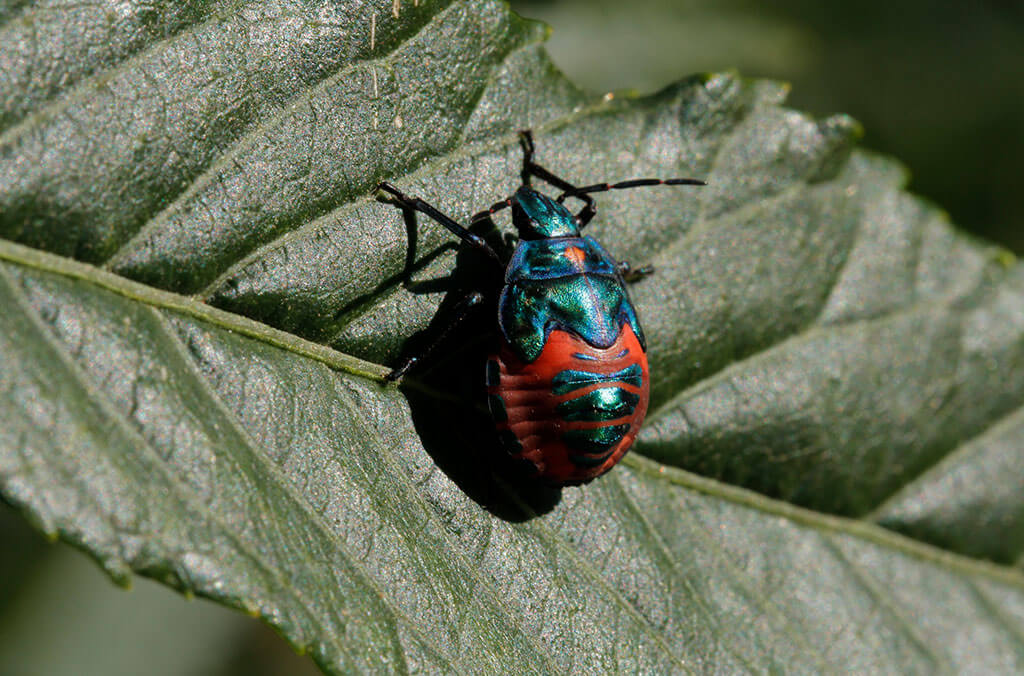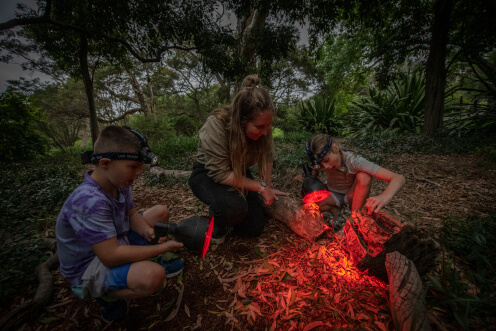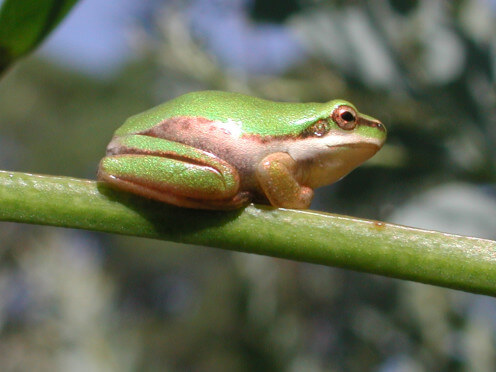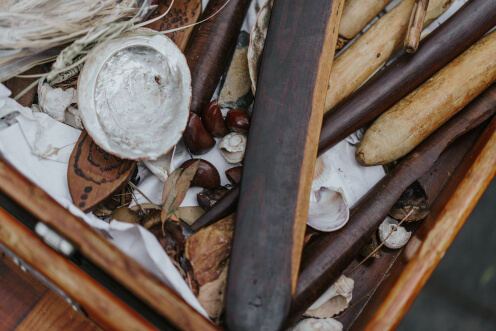
Stage 1
Science
2 hours
Visitor Centre, Blue Mountains Botanic Garden Mount Tomah
Minimum charges apply. Discounts apply for full day programs!
Invertebrates are everywhere!
Students will explore different habitats in the Botanic Garden to find these amazing creatures, observe their external features and discover how they change as they grow. Plus, they’ll get hands-on by modelling their own invertebrate with natural materials to take home.
Students will
- Investigate pond life using dipnets to collect water invertebrates and observe their features and life changes.
- Conduct a bug hunt to investigate which land invertebrates live in the Botanic Garden and use ID charts to identify and describe what they find.
- Meet our resident stick-insects, learn about their amazing features and life cycle before creating an invertebrate using clay and loose parts.
Key content
- Describe the external features of a variety of invertebrates they find in the Botanic Garden.
- Identify and group land invertebrates using their external features, for example worms, insects and spiders.
- Identify that invertebrates live in different places that suit their needs.
- Explore how water and land invertebrates change and have offspring similar to themselves.
- Use field work techniques to safely and responsibility collect animals for observation.
Links to New South Wales curriculum
Focus Syllabus Outcomes
Science - Living Worlds
- Describes observable features of living things and their environments (ST1-4LW-S)
Supported Syllabus Outcomes
Science - Working Scientifically
- Observes, questions and collects data to communicate and compare ideas (ST1-1WS-S)

Learn about invertebrates' amazing features and life cycles before creating an invertebrate using clay and loose parts.
Related excursions

Experience the Garden and its fascinating nightlife on this adventure by torchlight.

Learn how First Nations People’s concept of time and seasons is circular and explain how things happen in the world around them.

Students will investigate a wide variety of local native plants that are integral in the life of First Nations peoples.